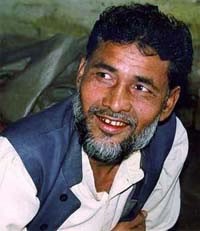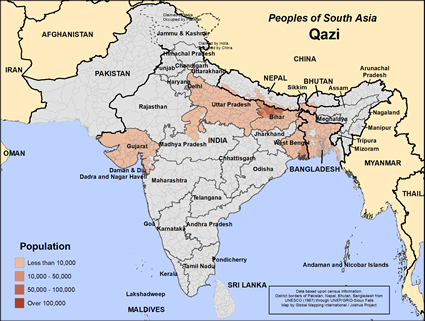The Qazi community derives its name from the term qadi, which means "judge." They have a tradition of being the religious leaders or imams among the Muslim groups. They enjoy a higher-than-average social status due to their general and religious education.The majority of the Qazis live in Bihar, India, but a significant number also reside in Nepal, particularly in the Maithili-speaking areas of the Narayani and Janakpur zones. They primarily live in Bihar, Gujarat, and Rajasthan. In the latter, they live mainly in Sikar, Churu, and Junjunu. A number also live in Bangladesh. In Nepal, the Qazi primarily speaks Maithili.
The Qazi is skilled in the art of Islamic religious rites and tends to perform traditional ceremonies for the broader Muslim community. They perform the birth, purification, marriage, death, and burial rites.
The Qazi are Sunni Muslims of the Hanafi school of thought. They faithfully follow the Muslim practice of praying five times a day. They also fast during the month of Ramadan, as do most Muslims. Some also celebrate Hindu festivals and traditions, as well as participating in animistic rituals.The Qazi are a very strategic community to bring to faith in Christ, as they would be natural spiritual leaders as followers of Isa (Jesus). A Qazi man could have a profound influence among many Muslim groups if he were able to remain in the community and serve as a Christ-following Qazi leader. With the Holy Spirit, all things are possible!
There is a need for education. There is also a lack of employment among them.
Ask the Holy Spirit to supernaturally reveal Jesus as the way, the truth, and the life to the Qazis.Ask God to open their eyes, hearts, and ears to the good news of the Savior.Pray for the Lord to raise up the right people to disciple the Qazi in his ways.Pray for the Lord to demonstrate his power and goodness among them in a way they will understand.Ask for an intervention of the Holy Spirit in each of their families.
Scripture Prayers for the Qazi in Nepal.
Singh, K. S., ed. "India's Communities A-Z", Oxford University Press, USA 1999.
| Profile Source: Joshua Project |











